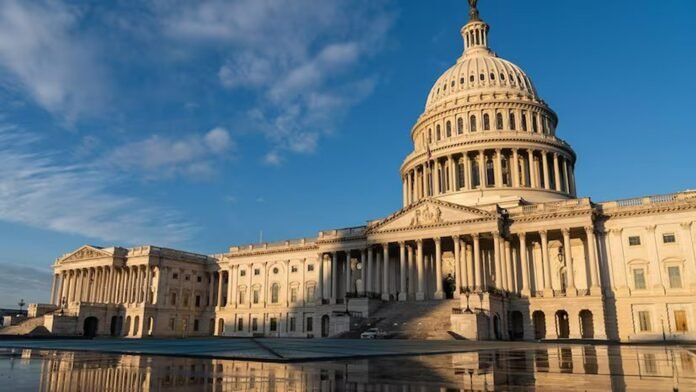In a significant breakthrough, the White House and Republicans have reached a bipartisan deal to raise the debt ceiling, averting a potential default by the United States. The agreement signifies a crucial step towards ensuring financial stability and safeguarding the nation’s economic standing.
The debt ceiling, a statutory limit on the amount of money the US government can borrow, has been a subject of intense negotiations and concerns in recent months. Failing to raise the debt ceiling would have risked a damaging default, potentially leading to severe consequences for the US economy and global financial markets.
The deal between the White House and Republicans highlights a willingness to put aside political differences and prioritize the nation’s financial well-being. The agreement provides a temporary resolution, allowing the government to continue meeting its financial obligations and avoiding potential disruptions to vital services and payments.
While specific details of the deal are yet to be disclosed, the agreement demonstrates a commitment to responsible fiscal management and maintaining the United States’ reputation as a reliable borrower in the global financial system.
Raising the debt ceiling is essential to ensure the government’s ability to pay for its existing commitments, including Social Security benefits, military salaries, and other vital programs. Failing to meet these obligations could have far-reaching implications, impacting the financial stability of individuals, businesses, and the broader economy.
The agreement between the White House and Republicans should provide some relief to financial markets and investors who have closely monitored the debt ceiling negotiations. It showcases the importance of bipartisan collaboration in addressing critical economic issues and maintaining confidence in the US financial system.
However, it is essential to note that the deal provides a temporary solution and does not address the long-term challenges associated with the national debt. The United States will need to continue addressing fiscal sustainability and finding ways to manage its debt burden effectively.
As the agreement to raise the debt ceiling progresses, it will be crucial for policymakers to work towards sustainable fiscal policies and address underlying structural issues. This includes focusing on measures to control spending, stimulate economic growth, and ensure the long-term financial health of the nation.
The resolution of the debt ceiling issue is a significant development, providing a sigh of relief for the US economy and global financial markets. By reaching a bipartisan deal, the White House and Republicans have demonstrated their commitment to preserving the nation’s financial stability and upholding the government’s financial obligations.



